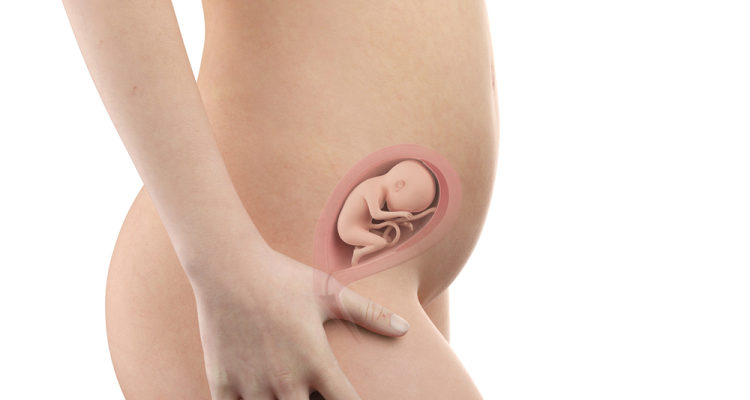
Main content:
Development of 20 weeks fetus
Maternal body changes at 20 weeks of pregnancy
Doctor's advice about 20 week pregnancy
Maternal and fetal health at 20 weeks
Development of 20 weeks fetus
How does a 20-week-old fetus develop?
The 20-week fetus, the baby is now the size of a banana, about 25 cm long from head to heel and weighs about 315g. The baby is taking more and more place in the mother's womb and the fetal development puts pressure on the mother's lungs, stomach, bladder and kidneys.
Under the protective wax, the baby's skin will thicken and develop layers of skin. Your baby's hair and nails will also continue to grow.
Maternal body changes at 20 weeks of pregnancy
20 weeks pregnant, how does mother's body change?
Your doctor will have your mother perform an ultrasound of the pregnancy , a test that uses sound waves to create an image. Ultrasound can determine the size, position of the fetus and any abnormalities in the structure of bones and organs that can be seen during this time. Depending on the position of the fetus, a mother can know if she can have sex or not. During an ultrasound, the umbilical cord, placenta, and amniotic fluid may also be examined. Talk with your doctor about the risks and advantages of this test.
What are the things you need to pay attention to?
Mother should consider making cord blood bank . Cord blood bank is a procedure in which cord blood is taken from a baby's umbilical cord shortly after birth and stored for future use in stem cell transplantation. There are two main ways to save umbilical cord blood:
Community: The public bank will collect and store umbilical cord blood for use by any patient in need of treatment.
Private: Families able to pay for services will have centers that monitor the collection and storage of cord blood, and this blood is stored only for the family's use.
Doctor's advice about 20 week pregnancy
What should mom discuss with the doctor?
A second ultrasound exam during your 20-week pregnancy is a great way to see how well your baby is growing and make sure everything is going well. Ultrasound in the middle trimester of pregnancy not only brings joy to watching the baby but also gives mothers and doctors a clear understanding of the overall health of the baby and your pregnancy. If you are concerned about this ultrasound, talk to your doctor for advice and clarify the problems you are concerned about.
What tests do you need to know?
By the time the baby is 20 weeks old, the mother will have amniocentesis if she has decided to have this test. Amniocentesis is done for a specific reason, but it is not a routine test. It is important for you to discuss the benefits, risks and limitations of these tests with your doctor. When amniocentesis, a sample of amniotic fluid is taken from the area around the baby. This sample will be checked to see if the baby has a genetic abnormality, such as Down syndrome .
Maternal and fetal health at 20 weeks
What do you need to know to ensure the safety of your 20-week pregnancy?
Organic food or inorganic food?
The biggest difference between organic and inorganic products is that organic produce is usually better for later mothers. Their differences in nutritional content are not really significant. There may be a residue of pesticides in inorganic foods, but they can be minimized by washing, peeling, or processing such as cooking food.
However, the most important thing is that mothers should eat 5–9 servings of fruits and vegetables per day. If you are on a tight budget, you don't have to limit your food by eating only organic foods.
Stand still for a long time
Do not stand all day when you are 20 weeks pregnant. Take the trouble to walk around. Standing still for long periods tends to lower blood pressure, and when you're 20 weeks pregnant, the problem can get worse. If her blood pressure drops, she may become delirious and possibly faint. You can counteract the risks by taking short, but frequent walks.
Pregnancy belts can also help support the abdomen and distribute weight into the third trimester .












